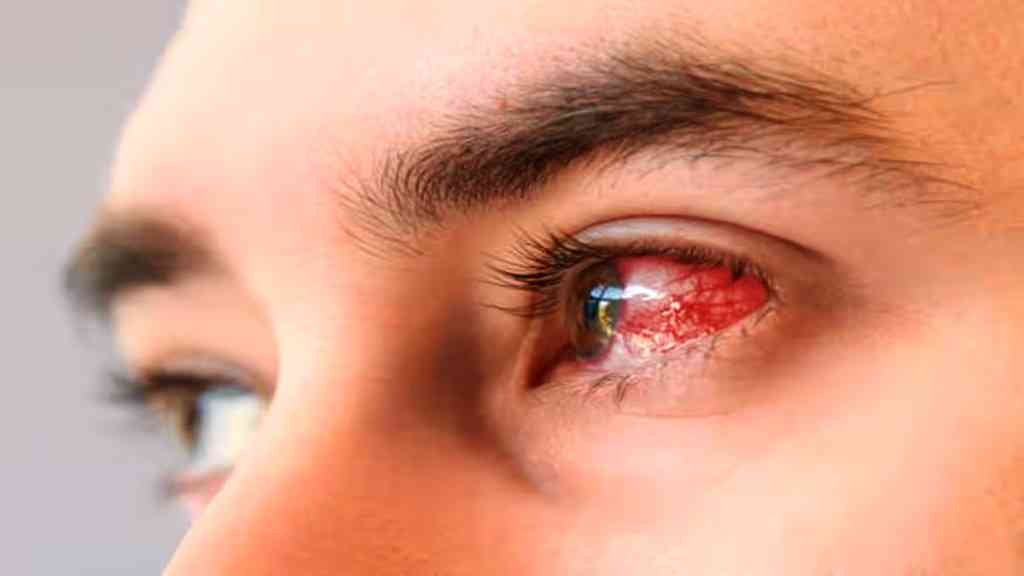Conjunctivitis, often referred to as eye flu, is an eye condition that affects millions of individuals worldwide. This common ailment causes inflammation of the conjunctiva, the thin membrane that covers the white part of the eyes and the inner surface of the eyelids. Conjunctivitis can be highly contagious and may spread through direct contact with an infected person or contaminated surfaces. In this article, we will explore the symptoms and various treatment options for conjunctivitis, along with essential tips for prevention.
Understanding Conjunctivitis (Eye Flu)
Conjunctivitis presents itself with a range of symptoms that can be bothersome and discomforting. The most common signs of conjunctivitis include:
Redness: The affected eye may appear pink or red due to inflammation of the conjunctiva.
Watery Eyes: Excessive tearing or watery discharge from the eyes is a typical symptom of conjunctivitis.
Itching: Patients may experience itching and a gritty feeling in the eyes.
Burning Sensation: The eyes might feel irritated and have a burning sensation.
Eye Discharge: A yellow or greenish discharge may accumulate around the eyelids, especially after sleep.
Swelling: The eyelids may become swollen and puffy.
Types of Conjunctivitis/Eye Flu
There are several types of conjunctivitis, each with different causes:
Viral Conjunctivitis: Caused by a viral infection, such as the common cold, adenovirus, or herpes simplex virus.
Bacterial Conjunctivitis: Caused by bacteria, this form of conjunctivitis is highly contagious and requires prompt treatment.
Allergic Conjunctivitis: Triggered by allergens like pollen, pet dander, or dust mites, this type is not contagious but can cause significant discomfort.
Chemical Conjunctivitis: Caused by exposure to irritants like smoke, chemicals, or chlorine in swimming pools.
Conjunctivitis (Eye Flu) Treatment Options
The appropriate treatment for conjunctivitis depends on its underlying cause. Here are the common treatment options:
Viral Conjunctivitis: This type usually resolves on its own within one to two weeks. Applying warm compresses and using over-the-counter lubricating eye drops can help alleviate discomfort.
Bacterial Conjunctivitis: Typically treated with antibiotic eye drops or ointments prescribed by a healthcare professional. It’s essential to complete the full course of medication to prevent recurrence.
Allergic Conjunctivitis: Avoiding allergens is crucial. Over-the-counter antihistamine eye drops or oral antihistamines can help manage symptoms.
Chemical Conjunctivitis: Rinse the eyes thoroughly with clean water and seek medical attention if irritation persists.
Eye Flu (Conjunctivitis) Prevention Tips
Preventing the spread of conjunctivitis is vital, especially in cases of viral and bacterial conjunctivitis. Follow these preventive measures:
Practice Good Hygiene: Wash hands frequently, especially after touching the eyes or face.
Avoid Touching Eyes: Refrain from rubbing or touching your eyes, as this can introduce infection.
Personal Items: Do not share personal items like towels, tissues, or eye makeup with others.
Stay Home: If you have conjunctivitis, avoid going to school or work until your doctor gives the green light.
When to Seek Medical Attention
While most cases of conjunctivitis resolve on their own or with basic home care, there are situations where medical attention is necessary:
Severe Symptoms: If symptoms worsen or do not improve with home treatment.
Impaired Vision: If you experience changes in vision or significant eye pain.
Unilateral Red Eye: Conjunctivitis usually affects both eyes, so consult a doctor if only one eye is affected.
Contact Lens Wearers: Seek immediate medical advice if you wear contact lenses and develop conjunctivitis symptoms.
Conjunctivitis, or eye flu, is a common and treatable condition that can cause discomfort and inconvenience. Understanding the symptoms and seeking appropriate treatment promptly can help prevent complications and the spread of infection to others. By maintaining good eye hygiene and following preventive measures, you can safeguard your eye health and reduce the risk of conjunctivitis. Remember, if you experience severe symptoms or concerns about your eyes, consult an eye care professional for personalized advice and treatment.




